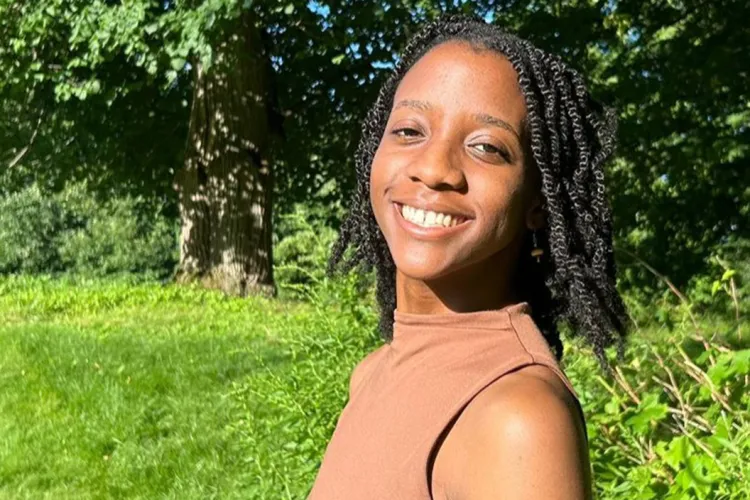Watson Fellow Aaliyah Bullen ’25 to Explore Language Sovereignty in Digital Age

Bullen’s project, “Language Sovereignty in a Digital Age,” will take her to Norway, New Zealand, and Canada to work with Indigenous language communities and explore how technology can be a tool for cultural resilience.
On an ordinary spring morning in New York City, Aaliyah Bullen ’25 was on her way to volunteer at a thrift shop when she got an email that would change her life.
Bullen had become one of just 37 students across the country to receive a prestigious Thomas J. Watson Fellowship — a one-year grant for purposeful, independent exploration outside of the U.S.
“By the time I opened the store door, my jaw was still on the floor,” says Bullen. “Any time I had a second of downtime, I snuck quick texts to friends and family with lots of exclamation points.
“I felt excited and grateful,” she adds, “and I had this sense that my world was about to get a lot bigger.”
Bullen’s project, “Language Sovereignty in a Digital Age,” will take her to Norway, New Zealand, and Canada to work with Indigenous language communities and explore how technology can be a tool for cultural resilience.
The inspiration for her project began at Swarthmore, in a computational linguistics class where students examined the accessibility of digital tools — like keyboards, transcription systems, and speech recognition — for under-resourced languages.
“We developed some rudimentary solutions,” says Bullen, a linguistics and computer science special major and Mellon Mays Undergraduate Fellow from New York City. “But I could tell that these problems needed more attention than a class setting allowed.”
That intuition deepened during her semester abroad in Australia, where Bullen served as a research assistant for the Research Unit for Indigenous Languages. There, she helped create an online dictionary for Aboriginal Dhudhuroa speakers and saw firsthand how digital tools can support linguistic and cultural survival.
But more than her academic or technical training, Bullen credits the people she’s met — activists, linguists, mentors, and friends — with shaping the heart of her project.
“Language technology is the lens, but the real core of this work is community empowerment,” she says. “I’m inspired by the people around me who challenge the status quo and show me how powerful resistance and collaboration can be.”
The Watson Fellowship offers graduating seniors the chance to engage in a year of self-designed, independent study aimed to “enhance their capacity for resourcefulness, imagination, openness, and leadership, and foster their humane and effective participation in the world community.” Fellows each receive a stipend of $40,000, in addition to other support.
Over the course of her Watson year, Bullen will spend a few months in each of the countries, connecting with language technology organizations and local communities. Her goal is not only to understand the digital tools already in use but to learn how relationships are built between technologists and community members — and how those collaborations can be made more sustainable and equitable.
Of course, the Watson Fellowship isn’t just about research. It’s also about self-discovery.
“I’m really excited for the freedom to adventure outside the lines,” she says. “I want to volunteer at cultural festivals, wear out my yet-to-be-purchased hiking boots, and share many good meals with people I meet along the way.”
She’s also hoping the journey will help her hold on to hope.
“Only about 5% of the world’s languages have access to robust digital support,” Bullen says. “That number can feel unsettling. But I believe this year will connect me with people working toward a brighter future — and help me become one of those people, too.”



